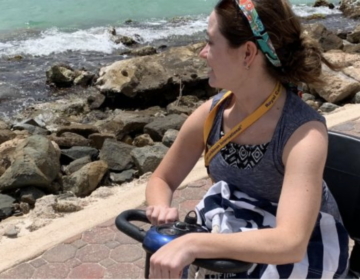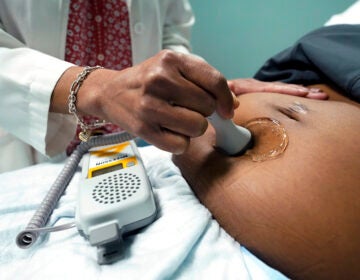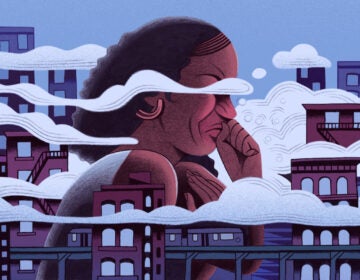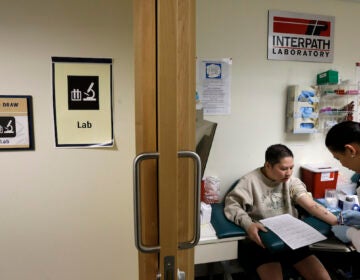Philadelphia summit to focus on increasing awareness of multiple sclerosis in Black communities
An estimated 2.9 million people worldwide live with multiple sclerosis, a chronic and lifelong disease. It disproportionately affects women.
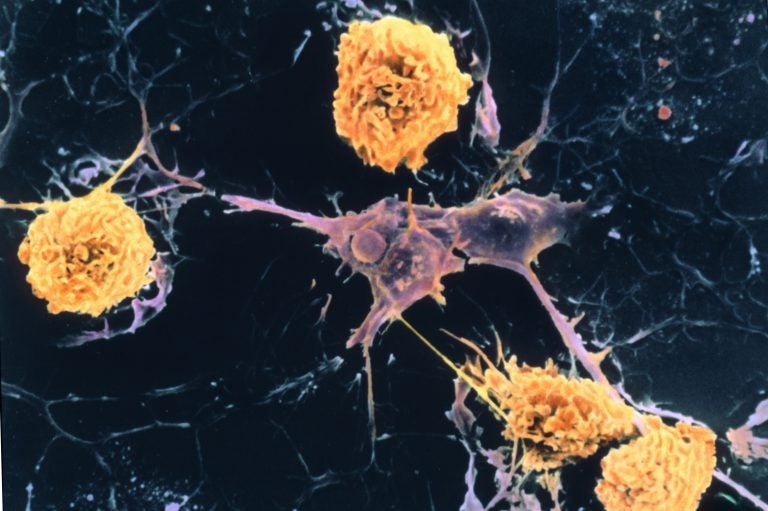
A scanning electron micrograph shows microglial cells (yellow) ingesting branched oligodendrocyte cells (purple), a process thought to occur in multiple sclerosis. Oligodendrocytes form insulating myelin sheaths around nerve axons in the central nervous system. (Dr. John Zajicek/Science Source)
From Philly and the Pa. suburbs to South Jersey and Delaware, what would you like WHYY News to cover? Let us know!
Multiple sclerosis was once thought to primarily affect white people of European ancestry, so many treatments and diagnostic procedures for this chronic, lifelong disease have targeted this patient population.
But newer research has proven that the disease, which impairs the central nervous system, is also seen at significantly high rates among Black people.
“It’s such an underserved population that notoriously didn’t get a lot of treatment and care,” said Mollie Burns, community engagement manager at the National Multiple Sclerosis Society.
That’s why advocates are working to boost awareness about the risks and signs of multiple sclerosis in these communities and patient populations.
The society’s Greater Delaware Valley chapter will host a summit event Saturday in Philadelphia that will focus on information about multiple sclerosis in Black communities and where patients can find support and resources.
“And learn what questions to ask and who to contact,” Burns said. “This is really important information as you’re being diagnosed — who do I talk to, how can I access that information?”
An estimated 2.9 million people worldwide live with multiple sclerosis, which disproportionately affects women. The disease causes a wide range of symptoms — vision problems, muscle weakness, coordination and balance issues and others.
These symptoms can be managed with medications and other types of therapy, and some types of multiple sclerosis can go into remission at times, but there is no cure for the disease.
A 2022 study published in the scientific journal Neurology found that rates of multiple sclerosis were similarly high among Black and white people in Southern California, and lower among Hispanic and Asian people.
Burns said she hopes increased awareness in underserved communities will lead to more people getting earlier diagnoses and earlier enrollment in disease management therapy, or DMT.
“With the correct DMT, you can have little to no progression in this disease,” she said. “That’s the hope.”
Saturday’s summit event in Center City will be held at the Friends Center at 15th and Cherry streets from 10 a.m. to 12:30 p.m.

Get daily updates from WHYY News!
WHYY is your source for fact-based, in-depth journalism and information. As a nonprofit organization, we rely on financial support from readers like you. Please give today.


